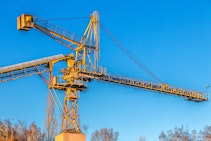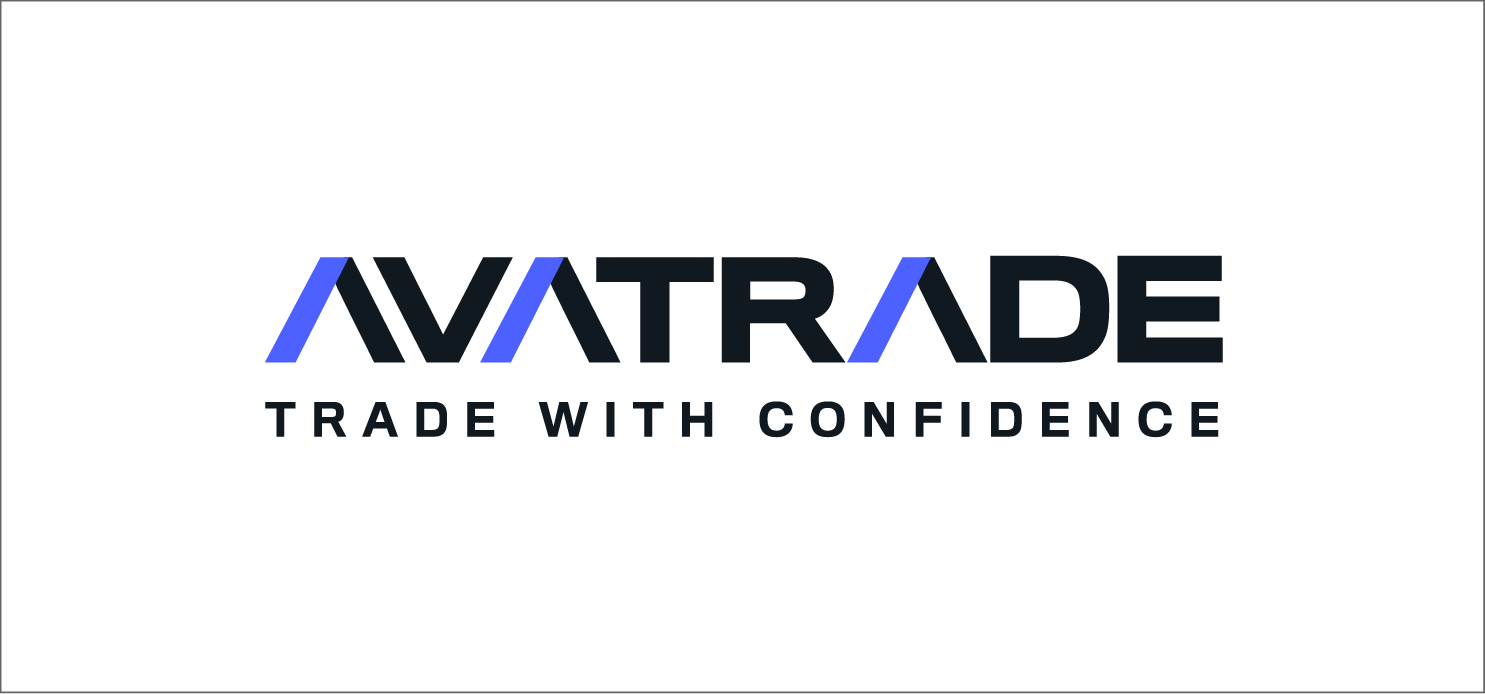The 10 Commodities With Great Potential to Trade in 2026
All products and services featured are independently selected by WikiJob. When you register or purchase through links on this page, we may earn a commission.
- A list of the Best Trading Brokers for Commodities and Commodity CFDs for January 2026
- Comparison Chart for the Best Trading Brokers for Commodities for January 2026
- The Top 10 Commodities to Trade in 2026
empty
empty
empty
empty
empty
empty
empty
empty
empty
empty
- Where Can You Trade Commodities?
- Description of the Best Trading Brokers for January 2026
- Why Choose to Trade Commodities?
- Factors to Consider When Choosing a Commodity to Trade
- Frequently Asked Questions
- Final Thoughts
A list of the Best Trading Brokers for Commodities and Commodity CFDs for January 2026
Comparison Chart for the Best Trading Brokers for Commodities for January 2026
Regulation FCA, ASIC, CySEC, MAS, FSCA, FMA, FSP | Minimum Deposit $100 | |||
Regulation FCA, DFSA, CySEC, BaFIN, ASIC, CMA, SCB | Minimum Deposit $0 | |||
Regulation ASIC, FCA, CySEC | Minimum Deposit $100 | |||
Regulation CySec, FCA, ASIC, MAS, FSA, EFSA, DFSA | Minimum Deposit $100 | |||
Regulation FCA | Minimum Deposit $250 | |||
Regulation FCA, CySEC | Minimum Deposit Varies | |||
Broker Saxo | Regulation FCA, FSA, MAS, ASIC, FINMA, ACPR, JFSA, SFC | Minimum Deposit None | ||
Broker ActivTrades | Regulation FCA, CySEC | Minimum Deposit Varies | ||
Regulation Varies | Minimum Deposit Varies | |||
Broker Moneta Markets | Regulation FCA, CySEC | Minimum Deposit $200 |
61% of retail investor accounts lose money when trading CFDs with eToro. You should consider whether you understand how CFDs work, and whether you can afford to take the high risk of losing your money.
In the context of trading, commodities fall into two categories:
- The first category is raw material. This category would include gold, silver and crude oil.
- The second category is agricultural product, such as corn and coffee.
The Top 10 Commodities to Trade in 2026
The popularity of commodities varies as much as their prices, but here is a list of the most traded commodities:
1. Gold
Gold is one of the most regularly-traded commodities and is a precious metal that is continually in demand.
Gold is rare, increasing its competitive demand, at an estimated 170,000 tonnes worldwide.
Used widely in the jewelry trade, gold is also purchased as an investment in its bar and base form and used to a lesser extent in industry. Gold is mainly sourced from China, Russia, and Australia.
As a commodity, the value of gold generally remains unaffected by inflation or geo-political factors and is hence seen as one of the safer commodity investments.
You can safely buy gold directly from Direct Bullion who are one of the top gold brokers in the UK
2. Silver
Another precious metal, as a commodity, silver shares many of the attributes of gold:
- Rare and therefore in high demand
- Used in the jewelry trade and industry
- Generally seen as a safe investment
However, due to the greater percentage of the silver supply that is used in industry, for instance, for solar panels, it may be more greatly affected by economic downturns.
3. Crude Oil
The first of the fossil fuels on our list, crude oil is not simply a source of energy. It can also be used for:
- Petrochemicals
- Production of textiles
- Production of fertilizers
- Production of steel
- Lubricants
- Plastics
So, while green energy becomes increasingly popular, crude oil is likely to continue to be in demand for the foreseeable future.
The greatest price driver of crude oil is supply and demand, and the factors that most affect crude oil pricing are geo-political and economic developments.
61% of retail investor accounts lose money when trading CFDs with eToro. You should consider whether you understand how CFDs work, and whether you can afford to take the high risk of losing your money.
4. Natural Gas
The second of the fossil fuels in this article, natural gas is used as an energy and fuel source. It too relies on supply and demand to arrive at a price but is a rarer material and more expensive to source than crude oil.
Unlike crude oil, the price of natural gas is often driven by our weather conditions; colder weather, for instance, creating a higher demand for natural gas and therefore driving up the price.
Again, in the face of the increasing popularity of green energy, the demand for natural gas may be affected.
5. Copper
With its ability to conduct heat and electricity and its resistance to corrosion and the effects of the weather, copper has many industrial and manufacturing applications:
- Electrical wires
- Piping
- Roof tiles
- Industrial machinery
- As part of an alloy
Copper is widely available and one of the most used metals globally. Both supply and demand are therefore high.
With the high demand for copper in industry, the factor that most greatly affects the price of copper is the health of the local and global economy.
6. Coffee
Currently one of the most volatile agricultural commodities on this list, coffee is widely consumed and produced.
The major producers of coffee are Brazil, Vietnam, Colombia, Indonesia and Ethiopia.
Numerous factors affect the price of coffee:
- Political and economic turmoil in the producing countries
- Weather conditions and their affect on coffee bean crops
- Transportation costs, which may, in turn, rely on the price and availability of oil
- The US dollar rate
- Public opinions towards the consumption of coffee
7. Soy Beans
Soy beans are widely used, high in protein and inexpensive to produce. The main producers are the Brazil, China, Argentina and India.
Besides their basic use, soy beans are also instrumental in the production of:
- Animal feed
- Meat substitutes
- Soyabean oil
- A substitute for milk
- Biodiesel
Factors that may affect the price of soy beans include weather conditions, demand for the products that soy beans are used to create, and the price of the US dollar.
8. Iron Ore
Iron ore is widely available and a relatively easy commodity to mine.
Historically, supply has matched demand, lending iron ore a relatively stable price.
However, the recent urbanization of China and its increased demand for iron ore to manufacture steel has led to a shortage of iron ore in comparison to demand. This has driven up the price in 2020.
Iron ore has a wide range of uses:
- Cast iron
- Steel production
- Magnets
- Industrial catalysts
9. Corn
As with soy beans, corn is widely produced and used, and its price is dependent on the demand for the products it is used to create.
Corn is used to make:
- Food products
- Animal feed
- Biofuel
- Industrial products
The price of corn may also be affected by environmental conditions and the effects on the corn crop, and the price of the US dollar.
10. Steel
Steel is created from iron ore and carbon, and on occasion, other elements such as manganese and tungsten. It may also be recycled through electric arc method furnacing.
It is relatively inexpensive to produce, strong and used in a wide variety of applications.
Generally, the price of steel has been dependent on economic output but other factors that may affect its price include:
- The price and availability of its constituent parts; for instance, iron ore
- Geo-political developments
- Developing technologies
Where Can You Trade Commodities?
You can trade commodities through a broker. However, choosing the right broker for you will depend on:
- The trading method you want to use, such as a CFD
- The broker’s experience with the commodity you are interested in
- Other factors such as pay-out dates, etc.
Your choice of trading method will decide how much money you must invest. For instance, if you wish to invest in a commodity worth $1,000, using leverage to purchase a CFD would mean paying out a fraction of the full $1,000.
In comparison, using standard trading methods would require an outlay of the full $1,000.
On top of your investment, you will incur broker fees.
Here are a few options for trading commodities. Always do further research before deciding on the best on for you.
Description of the Best Trading Brokers for January 2026
If you are interested in using an app to trade, read Top 10 Stock Trading Apps for more information.
1. Plus500
Pros
- No buy/sell commissions and tight spreads
- Leverage of up to 1:30
- FREE unlimited Demo
- 2,800+ trading instruments
- Real-time quotes and advanced analytical tools
- Fast and reliable order execution
Cons
- No API integrations
- No social copy trading
Plus500 is a CFD provider and offers only CFDs.
Another user-friendly entry on our list of the best forex and CFD brokers in the UK is Plus500, providing an easy-to-use and accessible service.
You’ll find over 60 CFD currency pairs with competitive spreads, no commission and available leverage of up to 1:30.
Although MetaTrader and cTrader are not available, Plus500’s own platform is very user-friendly. It comes with a range of intuitive risk management features and is available on web and mobile.
Plus500 requires a minimum deposit of £100 if using a credit or debit card, and £500 if using bank transfer.
Plus500 UK Ltd authorized & regulated by the FCA (#509909).
2. Pepperstone
Pros
- Extensively regulated
- No minimum deposit
- Low fees and mostly free withdrawals
- Good customer service
Cons
- No investor protection for clients outside UK, EU and EEA
- Withdrawal fee for international bank wires
- CFDs only
Recommended for: Safety and regulation, low-cost processing, fast execution speed, perfect for algo-traders, EAs, etc.
Founded in 2010, Pepperstone has been quick to adapt to the social copy trading trend, providing plenty of tools for traders to share and mimic trading styles.
With over 1,200 instruments, it offers two account types:
- Standard – The Standard account comes with market average spreads and zero commission
- Razor – This account operates on a commission basis but with exceptionally low spreads
Pepperstone does not have its own platform for UK clients but offers the complete MT4, MT5 and cTrader (including cTrader Automate), TradingView and VPS as well as supporting DupliTrade for copy trading.
They normally recommend a minimum of 200–500 USD to start trading, even though a minimum deposit is not required.
3. eToro
Pros
- Regulated by FCA, ASIC
- 0% commission on stocks
- Social and copy trading
Cons
- More expensive than most of its competitors
- No MetaTrader platforms
eToro brokers both stocks and CFD trading opportunities, although for commodities, only CFDs and spread betting are offered.
It operates across 19 commodity markets.
Its patented software CopyTrader puts the trader in control, providing you with the opportunity to copy top-performing trader portfolios.
eToro customers can take advantage of an online community of traders too.
To find out more, read our eToro review.
61% of retail investor accounts lose money when trading CFDs with eToro. You should consider whether you understand how CFDs work, and whether you can afford to take the high risk of losing your money.
4. AvaTrade
AvaTrade provides access to a diverse array of commodities for trading.
These include:
- Precious Metals: Such as gold, silver, platinum, and palladium, which are traditional safe havens during times of economic uncertainty.
- Energy Commodities: Including oil and natural gas, which are often influenced by geopolitical and supply-demand dynamics.
- Agricultural Commodities: Like coffee, sugar, corn, wheat, and soybeans, prices of which can be affected by factors like weather conditions and global economic trends.
Commodities at AvaTrade are traded as Contracts for Difference (CFDs). This means traders can speculate on the price movement of a commodity without actually owning the physical product.
CFD trading allows for the possibility of profits in both rising and falling markets and offers the ability to use leverage.
AvaTrade provides several trading platforms suitable for commodity trading. These include the popular MetaTrader 4 and MetaTrader 5 platforms, as well as AvaTradeGo, their mobile trading app. These platforms are equipped with tools and features like advanced charting, live price feeds, and analytical tools.
AvaTrade is regulated by several financial authorities globally, which ensures a high standard of compliance and security for traders. This regulation provides a layer of trust and safety for your trading activities.
5. IG
IG is a global, award-winning trading provider, established in 1974. IG offers commodities trading across DMA commodities, CFDs and spread-betting. It operates across 38 commodity markets.
It also covers broker trading in forex, stocks and cryptocurrencies.
6. XTB
Pros
- Regulated by the FCA
- Low forex fees
- Fast withdrawal and deposit with no fee
- Live chat customer service
Cons
- Limited product portfolio
- High fees for stock CFDs
As a broker that you can trust, XTB is both well-regulated and listed on the stock exchange. The registered office is in Canary Wharf, London.
XTB offers investors and traders the opportunity to trade commodities, stocks, metals, forex, indices and cryptocurrencies, as well as ETFs and CFDs, and it is regulated in top-tier jurisdictions by FCA, CySEC, IFSEC and KNF.
Traders can easily open an account online and can choose between the commission-free Standard account or the Pro account that includes tighter spreads, but there is a commission that needs to be paid on all trades.
Deciding what platform to use to make your trades depends on your location – in most countries, you can choose MetaTrader 4 or the proprietary platform xStation (although MT4 is not available to UK customers).
XTB is a great choice for beginners thanks to the huge range of educational materials, categorized by level (beginner, intermediate and advanced) and the customer service options that are available only on weekdays.
There is a fully functional demo account so beginners can practice strategies and get used to using the platforms.
The more experienced trader will enjoy a huge range of research resources, including trading signals, technical analysis, details about different instruments, and even a heat map and market sentiments.
CFDs are complex instruments and come with a high risk of losing money rapidly due to leverage. 69-80% of retail investor accounts lose money when trading CFDs with this provider. You should consider whether you understand how CFDs work and whether you can afford to take the high risk of losing your money.
7. Saxo
Pros
- Heavily regulated
- Good product portfolio
- Low forex fees
- No withdrawal or inactivity fees
Cons
- Does not accept US clients
- High fees for options, futures and bonds
Saxo offers an impressive platform for commodity trading, making it a robust choice for traders looking to diversify their portfolios with commodities.
Saxo provides traders with access to a broad array of commodities, which can be traded as CFDs, futures, options, spot pairs, or exchange-traded commodities (ETCs). This variety allows traders to engage with different markets and leverage different financial instruments depending on their trading style and risk tolerance.
Saxo's platform allows for considerable flexibility in trading strategies. Traders can go long or short, providing opportunities to profit from rising and falling markets. Additionally, Saxo supports hedging strategies, which can be crucial for managing risk in volatile commodity markets. Traders can also take a long-term view, adjusting their strategies according to market conditions and personal investment goals.
With options, futures, and stocks available for all top commodities, Saxo equips traders with the necessary tools to effectively trade in these markets. This includes advanced charting tools, analytical resources, and real-time data that help traders make informed decisions.
Saxo is committed to supporting traders at all levels of expertise with comprehensive educational resources. This includes tutorials, webinars, and detailed guides that focus on commodity trading strategies and market analysis. Moreover, Saxo’s customer support is readily available to assist traders with any queries related to commodity trading.
Trading with Saxo, a platform that adheres to strict regulatory standards, provides an additional layer of security. This is especially important in the often volatile commodity markets, as it ensures that trading practices are transparent and fair.
8. Freedom24
Pros
- Over a million trading instruments
- Regulated by CySEC
- Push notifications with important information about your portfolio or trades
Cons
- Withdrawal fee on each transaction
- No option to buy fractional shares
- Only available in Europe
Freedom24 doesn't offer commodities to trade directly, but has plenty of ETFs of them.
Freedom24 is a CySEC-regulated trading platform that has access to 15 major exchanges in Asia, Europe, and the US – and while they do not offer commodity trading, there are plenty of commodity ETFs available.
Opening an account with Freedom24 is simple and straightforward, usually only taking about 15 minutes – and new customers are automatically provided with a 30-day commission free trading account to get used to the platform (alongside a demo account).
In terms of account charges and trading fees, Freedom24 has several different account types available, which you can choose from to suit the way you plan to trade – the more you pay in account fees, the cheaper each transaction will be. However, all accounts are subject to a €7 withdrawal fee, but you won’t be charged for inactivity and there is no minimum deposit.
You can learn a lot using the resources available at Freedom24, which include research tools, professional analysis, and investment recommendations as well as two in-depth trading courses (one for beginners, and one for those with a bit more experience).
The web trader platform and the mobile app both offer simple and easy to use interfaces, with an intuitive design, but they are limited in terms of customisation which might be limiting for the more experienced trader.
9. ActivTrades
Pros
- No minimum first-time deposit
- Optimal trading execution
- More than 1,000 CFDs
- State-of-the-art trading infrastructure
- Customer support on 14 languages via email, chat and telephone
Cons
- No copy trading
- Not available for US clients
- No bonus for EU based clients
ActivTrades is a traditional CFD broker and has been trading for more than 20 years on 140 markets. ActivTrades is authorized and regulated by the FCA, CSSF and SCB.
Its strong points include:
- No minimum first-time deposit
- No commissions
- Several payment methods for deposits and withdrawals
- Tight spreads from 0.5 pips
It offers one of the best execution speeds in the industry with low latency below 0.004s.
It utilizes the most advanced technology to improve users' trading efficiency – users can automate trades, build integrations and create trading apps using ActivTrades' market-leading CFD and spread betting technology.
Exceptional trading infrastructure is available on ActivTrader and MetaTrader 4 and 5.
ActivTrades invests deeply in specially developed educational materials for its clients – including webinars, regular outlooks, manuals, etc.
Type of offers: ActivTrades focuses on well-developed products in its trading portfolio. Customers can choose from over 1,000 CFD or spread betting instruments across forex, indices, shares, commodities, financials and ETFs.
It also offers investing solutions for its institutional partners.
Spread betting allows UK residents ONLY to trade the prices of financial instruments, including forex, indices, commodities and LSE shares.
10. Moneta Markets
Pros
- Regulated by CIMA
- Negative balance protection
- No deposit fees
- Low minimum deposit
- MetaTrader 4 and PRO Trader platforms
- No inactivity fee
Cons
- No customer support during weekends
- Educational and research content not as strong as others
Moneta Markets was founded in 2009 and is regulated by ASIC and FCA. With Moneta Markets, users can trade forex as well as indices, commodities and share CFDs with just a $50 minimum deposit.
With Moneta Markets, you can trade CFDs on top commodities like oil, gas, coffee and even orange juice.
There are three trading accounts available, depending on whether you want to pay a commission and get tighter spreads or have the trading costs built into the spread. This means that True ECN accounts have a commission cost of $6 per lot, but spreads that start at 0 pips on Forex, while STP and Prime accounts have the fees built into the spread.
With Moneta Markets, traders can choose to use MetaTrader 4 and 5, as well as the proprietary WebTrader and AppTrader platforms (available for web and mobile use respectively).
MT4/5 are well known great platforms for traders with outstanding research, tools and algorithmic trading available.
The proprietary platform has a simple user interface. While that is great for beginners, there is not as much depth in the platform for those who are more advanced.
Trading tools are not integrated, and both the mobile and web app could do with some updating to be as reliable and usable as other proprietary platforms offered by similar brokers.
There is a demo account available, which allows traders to practice their strategies and work out how best to use all the functions of the platform.
The research on the platform is almost entirely third-party – other than the Moneta TV YouTube channel which has daily market briefings.
However, if you are using the MetaTrader suite there is a lot of research and analytics available through Trader Central, so the lack of in-house research on the Moneta Markets platform might not be too much of a problem.
There is an extensive Masters Course, which is a series of more than 100 videos that are suitable for beginners through to advanced traders, covering many topics and in different categories and they can be viewed and used completely independently.
The customer service on Moneta Markets is available 24/5, through email, phone and live chat.

Why Choose to Trade Commodities?
There are many reasons why you would choose to trade commodities as part of your portfolio:
- Commodity values are generally based on supply and demand, a factor which you can monitor to predict the rise and fall of a commodity value and hence whether to buy or sell.
- There are several ways to invest in commodities, the most commonly-used methods being standard buying and selling, futures contracts and CFDs.
- In uncertain and turbulent times, certain commodities are more likely to retain their value regardless of external factors. This generally makes them a safer investment.
- Commodity prices can vary greatly, swinging from high to low on a regular basis, and therefore can provide you with the opportunity to make generous profits.
- Commodities can provide an excellent way to diversify your portfolio.
Factors to Consider When Choosing a Commodity to Trade
Commodities may provide an excellent option for your trading portfolio but how do you decide which are the best ones to trade?
When making your decision, consider the following factors:
- What is the liquidity of the commodity? How easy is it to buy and sell the commodity? How high or low is the supply and demand of that material? If you buy this commodity, are there sufficient traders available to buy from you at the price you want to sell at?
- What is the related geo-political environment? For instance, is the supply of a commodity low because of an ongoing war in the country that is the main supplier of that commodity, or have economic sanctions been enforced on one of the main suppliers?
- What is the future of this commodity? For instance, in the case of fossil fuels, these may become scarce in the future, reducing the supply – which could increase the demand. But they may also become less popular as green energy sources (such as solar power) are taken up by consumers and manufacturing methods move away from the use of fossil fuels, hence reducing the demand.
- What trading method do you want to use? Are you interested in futures contracts, CFDs or standard trading where you buy the commodity now and sell it when you can make a profit?
Read Stocks vs CFDs: The Key Differences to find out which investment method best suits your needs.
Considering all of the above factors will demand a high level of research and ongoing assessment by you as a trader.
Trade commodities are physical goods that are traded on markets such as gold, silver, crude oil, wheat, coffee and other agricultural products.
These commodities are often used in the production of other goods or as investments, with their prices determined by supply and demand in the market.
Trading commodities online can be done through a variety of platforms and brokers, which allow traders to access commodity markets and make trades from their computers or mobile devices.
To trade commodities online, traders typically need to open a trading account with a reputable broker, fund the account and choose which commodities to trade based on their research and analysis.
There are many online brokers and platforms that offer access to commodity markets, including eToro, Plus500 and IG.
It's important to conduct research and compare fees, trading tools and customer support before choosing a platform to ensure that it meets your trading needs.
To trade commodities with little money, traders can consider using leverage, which allows them to open larger positions with smaller amounts of capital.
However, it's important to be aware of the risks involved with leverage and to only trade within one's risk tolerance and trading goals.
People trade commodities for a variety of reasons, including as a way to diversify their investment portfolio, hedge against inflation or geopolitical risks, and speculate on price movements in the market.
Trading commodities can offer opportunities for profit, but also involves significant risks and requires careful research, analysis and risk management.
Futures contracts are standardized agreements to buy or sell a specific commodity or financial instrument at a predetermined price and date in the future.
These contracts allow traders to speculate on the future price of a commodity or to hedge against potential price fluctuations.
Trading commodities involves significant risks, including market volatility, liquidity risks and geopolitical risks.
Traders may also face margin calls, which require them to deposit additional funds to maintain their positions.
To manage these risks, traders should conduct thorough research and analysis, develop a trading plan, and practice proper risk management techniques.
Yes, traders can trade commodities without owning physical commodities by using derivatives such as futures, options and contracts for difference (CFDs).
These instruments allow traders to speculate on the price movements of commodities without taking ownership of the underlying assets.
When choosing which commodities to trade, traders should consider a variety of factors, including market trends and conditions, supply and demand dynamics, geopolitical risks, and their personal trading goals and risk tolerance.
It's important to conduct thorough research and analysis, and to stay up-to-date on relevant news and market developments to make informed trading decisions.
Traders may also consider using technical analysis tools to identify potential trading opportunities.
Commodity prices are affected by a variety of factors, including supply and demand dynamics, weather patterns, geopolitical risks and currency fluctuations.
For example, a drought in a major agricultural region may reduce the supply of crops, leading to higher prices.
Similarly, a rise in global demand for a commodity such as oil may cause prices to increase.
Yes, there are regulations and laws that govern commodity trading, including rules related to disclosure, reporting and market manipulation.
In the United States, the Commodities Exchange Act (CEA) regulates the trading of commodities and derivatives, while the Securities and Exchange Commission (SEC) oversees the regulation of securities markets.
There are many brokers that offer online trading of commodities, including eToro, Plus500 and IG.
When choosing a broker, traders should consider factors such as fees, trading tools, customer support and the range of commodities available for trading.
It's important to conduct research and compare brokers to find one that meets your trading needs and goals.
Final Thoughts
While access to trading commodities is widely available, your success will depend on how well you research the suitability of each commodity to your needs and your talent at monitoring the factors affecting the performance of that commodity.
It is always recommended that you take professional advice from a suitable broker to support your research and knowledge.
WikiJob does not provide tax, investment or financial services and advice. The information is being presented without consideration of the investment objectives, risk tolerance or financial circumstances of any specific investor, and might not be suitable for all investors. Past performance is not indicative of future results. Investing involves risk including the possible loss of principal.











